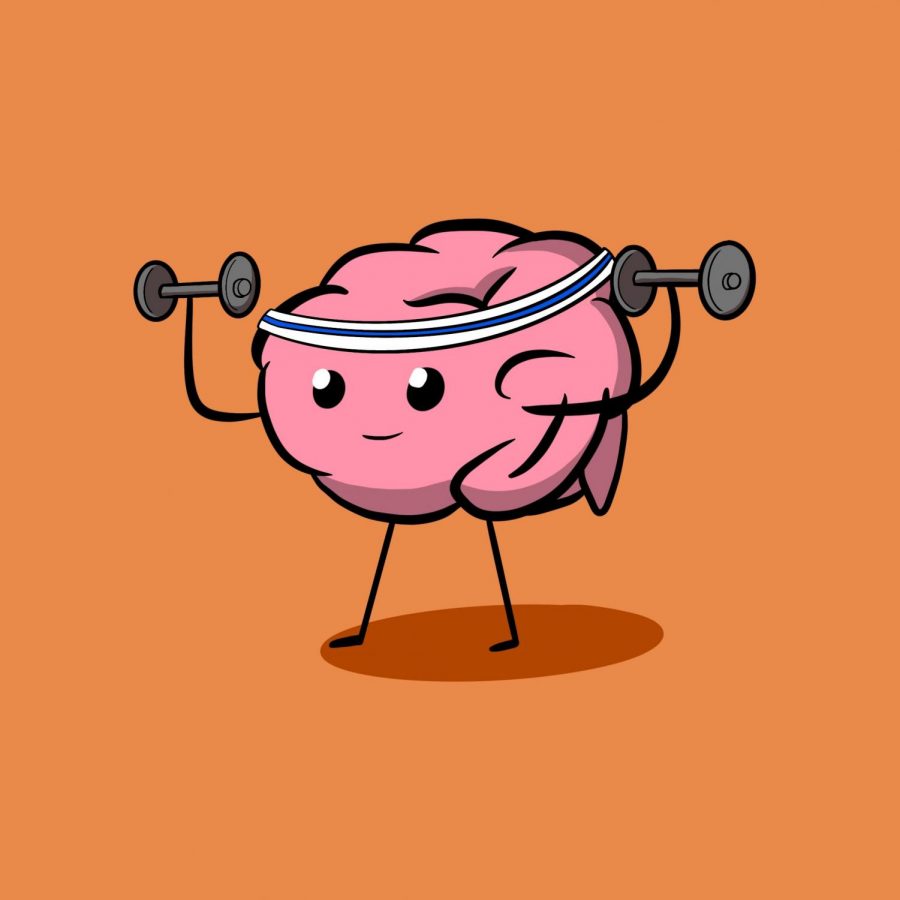Opinion: If the pandemic’s got you feeling down, exercise can lift you up
August 31, 2020
As the entire world faces a global pandemic, it is likely that many, if not all, have felt isolated at some point, while being stuck in a daily routine that may feel inescapable. It is important, during these times, to stay active and healthy. Physical activity is not only beneficial in terms of lowering your risk for Type 2 diabetes, cardiovascular complications and obesity, but it has also been shown to have profound positive effects on mental health.
According to Jeanne Sygal (P.h.D), physical activity can have positive results in fighting against mental illnesses such as depression, anxiety, ADHD, PTSD, and even everyday stress.
The National Institute of Mental Health states that in the United States, it is predicted that one in two adults will suffer from mental illness at some point in their life, and 5% of adults over the age of 18 have reported having a mental illness in any one year. While this number may seem small at first, it is actually equivalent to 43.8 million people. A staggering statistic reflecting the issues many of us face in our day to day lives.
Although, studies show that physical activity can have the same results as an antidepressant for mild to moderate depression. In a recent study conducted at Harvard, it was found that major depressive disorders could be prevented by 26% just by walking an hour a day. The same results could be achieved by running for a mere 15 minutes a day.
In terms of anxiety and day to day stress, exercise has shown to be prevalent in helping the mind escape from negative habits. It is suggested to focus on the rhythm of your exercise in order to escape or look past trapping thoughts. In the same way, exercise helps those with PTSD who feel immobilized due to a certain trauma they are facing. When exercising with PTSD, it is important to restrict the mind from wandering into trauma. It is suggested to focus on the feeling in your joints and muscles while exercising.
Exercise boosts your brain’s levels of serotonin, norepinephrine, and dopamine levels, helping to retain focus and mental clarity, reducing the symptoms of ADHD. In turn, it has the same reaction as Ritalin or Adderall has on the brain.
In a study produced by mental health America, statistics have shown the mental health of our youth is only getting worse. The study has proven that major depression has increased by 4.35% in youth over the last six years. Alongside this statistic, it has also been found that 60% of youth that showed symptoms of major depressive disorders did not receive treatment.
These statistics are important to keep in mind during these dismal times. It is easy to be unaware of how we are feeling until we reflect upon ourselves. While we may find ourselves living in an unprecedented time in history, it is important to avoid becoming lethargic in our habits.
Instead, see the opportunity each day has to offer and value the freedom and accessibility of physical activity. Staying active throughout the day is a crucial part of health. To some, the idea of physical activity seems daunting or unrealistic, yet, it is possible.
Even taking a break from a daily routine to go on a jog, or taking a walk can have positive effects on not only physical health but mental health as well. If you are feeling serious signs of mental illness, it is important to not only rely on physical activity to help, but it is crucial to reach out and seek professional help.



















Vinnie • Sep 4, 2020 at 4:06 pm
I love this article, very relevant and important. It’s great to see you guys addressing real stuff. Keep up the good work.
Roland • Sep 1, 2020 at 9:23 am
Timely, beneficial information. Makes me want to hear more. A follow up might include some relatable personal experiences and motivation tips.